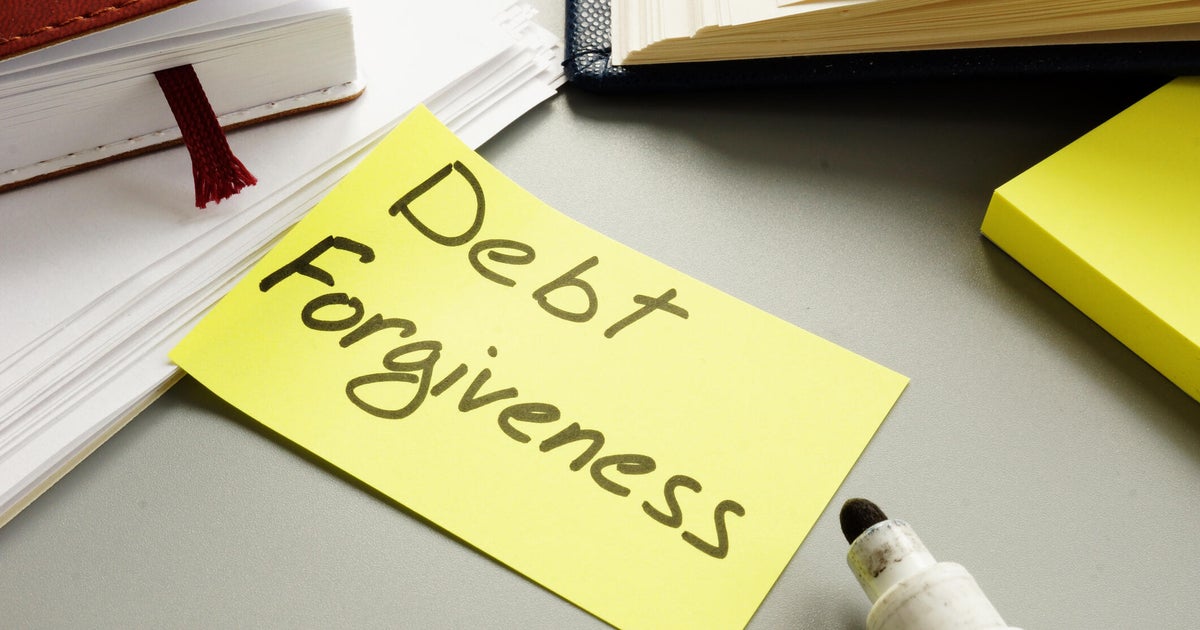

No response returned

Whether it's , expensive medical bills, high-rate personal loans or lingering student loans, carrying costly debt has become a common thread for households across the country. According to the latest Federal Reserve data, of $18.04 trillion in the fourth quarter of 2024. And, that uptick in total debt coincided with an increase in delinquent credit card and auto loan payments, both of which are indicators of how difficult it is for Americans to keep up with their debts in today's .
If you're one of the many who are struggling right now, you may be exploring your options, , to find relief. When you , the goal is to work with your creditors to try and settle the debt for less than what you currently owe. That, in turn, can provide some serious relief, helping you get your finances back on track. But here's the thing: Not all debts are created equal when it comes to forgiveness. While can be reduced and partially forgiven, others are excluded.
So, before you sign on the dotted line for , you need to know what debts might actually be eligible for forgiveness and which ones you'll still be stuck with. Below, we'll detail what qualifies — and what doesn't — if you're trying to have your debt forgiven.
.
Several types of debts qualify for debt forgiveness, including:
Credit card debt: Credit card debt is one of the most commonly forgiven types of debt, so if you're that you can no longer afford, this debt relief option could be smart to pursue. In many cases, you may even be able to by offering a lump-sum settlement to the creditor. However, you typically need to be significantly behind on your payments and be experiencing serious financial hardship .
Medical debt: Medical bills can be a major source of financial stress, but fortunately, these types of debts are often eligible for forgiveness. Many hospitals offer financial assistance programs that can reduce or eliminate bills based on income and need. Medical debt is also a common target for , so like credit card debt, it can often be settled for less than the full balance by negotiating on your own or with the help of a debt relief company.
Private student loans (in certain cases): Some borrowers with private student loans may qualify for partial forgiveness through debt settlement. This usually requires showing that repayment is not feasible due to long-term financial hardship, but as with other types of debt, lenders aren't required to forgive any portion of private student loans, so outcomes vary widely. If you go this route, working with a debt relief professional who understands the private loan landscape can help .
Unsecured personal loans: Like credit card debt, , which are loans not tied to collateral like a car or house, may be eligible for forgiveness through debt settlement. If the lender believes you're unable to pay the full amount, they may agree to take a reduced balance to recover at least part of the debt. This is more common when the loan is already in collections or severely delinquent.
.
And, these are the debts that typically won't qualify for forgiveness:
Federal student loans: Federal student loans don't typically qualify for settlement programs, but they generally have their separate channels, like or . If you're not eligible for those types of forgiveness or reduced repayment options, you'll be expected to repay the full student loan debt.
Tax debt (unless you qualify for an IRS program): Tax debt owed to the IRS or your state can be extremely difficult to get rid of through traditional debt forgiveness. That said, like Offer in Compromise (OIC), which allows you to settle for less than you owe if you can prove serious financial hardship. These programs can be complex to navigate, though, and approval isn't guaranteed. Many people will need professional help during the process.
Child support and alimony: Debts related to court-ordered child support or alimony payments are not eligible for forgiveness, either. These are legal obligations, and failing to pay them can result in wage garnishment and even jail time in some cases. If you're struggling with these payments, your only option is to go through the legal system to request a modification.
Secured debt like mortgages and car loans: If you fall behind on a mortgage or auto loan, the lender has the right to repossess the asset (your home or car). These loans are backed by collateral, so lenders have more security and less incentive to forgive the debt. In some rare situations, such as a short sale or a voluntary surrender of a vehicle, you might be able to negotiate a reduced deficiency balance, but true forgiveness is rare.
Debt forgiveness can be a powerful tool if you're overwhelmed with unsecured debts like credit card balances or medical bills, but it doesn't apply to everything. Understanding which debts you can realistically reduce or eliminate can help you avoid wasted time and frustration. If you're unsure where to start or which options you qualify for, it may be worth speaking with a debt relief expert. The more informed you are about what will (and won't) qualify for forgiveness, the better your chances of building a clear path out of debt.




